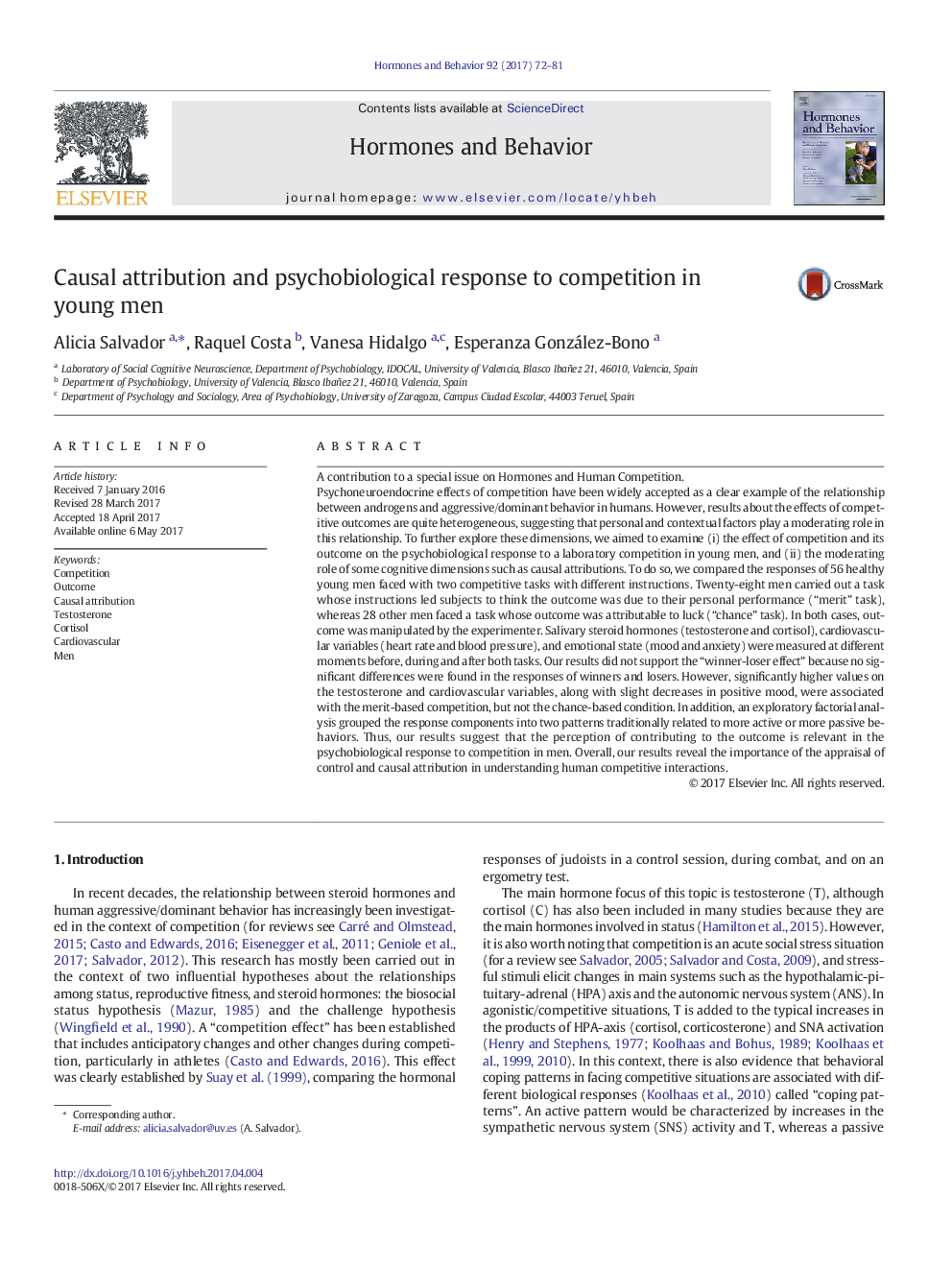ترجمه فارسی عنوان مقاله
اختصاص دادن علت و پاسخ روان شناختی به رقابت در مردان جوان
عنوان انگلیسی
Causal attribution and psychobiological response to competition in young men
| کد مقاله | سال انتشار | تعداد صفحات مقاله انگلیسی |
|---|---|---|
| 120980 | 2017 | 10 صفحه PDF |
منبع

Publisher : Elsevier - Science Direct (الزویر - ساینس دایرکت)
Journal : Hormones and Behavior, Volume 92, June 2017, Pages 72-81
ترجمه کلمات کلیدی
رقابت، نتیجه شناسایی علت، تستوسترون، کورتیزول، قلبی عروقی، مردان،
کلمات کلیدی انگلیسی
Competition; Outcome; Causal attribution; Testosterone; Cortisol; Cardiovascular; Men;

